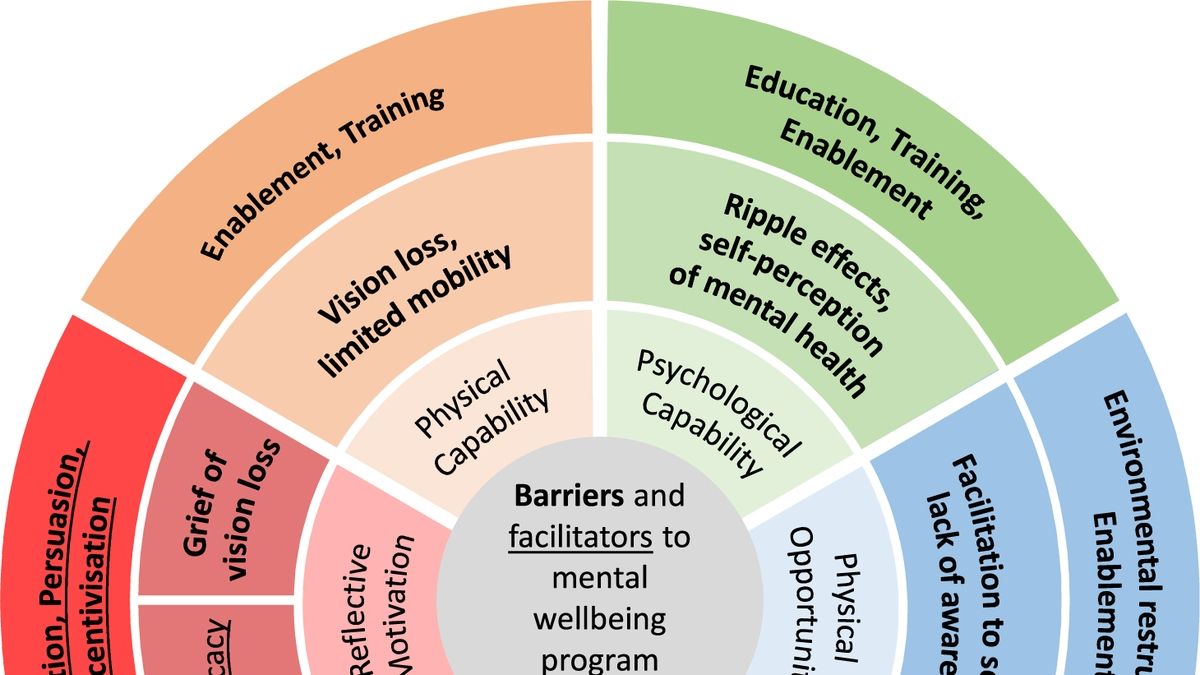
Imagine the world gradually losing its color and clarity, where faces become blurs and landscapes merge into indistinct shapes. For millions of seniors, this scenario isn’t a figment of imagination but a daily reality due to vision impairment. A compelling study published in JAMA Ophthalmology by Dr. Louay Almidani and colleagues from the Johns Hopkins University School of Medicine sheds light on the profound impact that vision loss has on the mental health and social lives of adults aged 65 and older.
The Unseen Burden of Vision Impairment
Analyzing data from the National Health and Aging Trends Study for 2019 and 2021, the research included 2,822 community-dwelling adults, representing over 26 million seniors nationwide. Astonishingly, 32.3% of these participants had objectively measured vision impairment, while only 6.4% reported it themselves. This discrepancy highlights a critical gap in awareness and self-reporting, suggesting that many may underestimate or adapt to their declining sight without recognizing its severity.
The study establishes a clear link between vision impairment and increased odds of experiencing depressive symptoms (odds ratio, 1.81), anxiety symptoms (odds ratio, 1.74), and severe social isolation (odds ratio, 2.01). Interestingly, while self-reported vision impairment was significantly associated with depressive and anxiety symptoms, it did not show a significant correlation with severe social isolation. This finding suggests that the subjective experience of vision loss may differ greatly from its objectively measured reality, impacting mental health in ways that are not directly related to social isolation.
Navigating a World Less Seen
The implications of these findings are profound, especially considering the increasing prevalence of vision impairment among the aging global population. The study not only underscores the importance of maintaining eye health but also points to a pressing need for prioritized research aimed at improving health and inclusion for individuals with vision impairment.
According to the study, the COVID-19 pandemic further exacerbated the challenges faced by those with vision loss, increasing the likelihood of reporting anxiety symptoms and the risk of social isolation. This highlights the necessity of considering environmental challenges and inequities in access to care when addressing the relationship between vision impairment and psychosocial outcomes.
A Call to Action
The study’s findings serve as a call to action for healthcare providers, policymakers, and caregivers alike. Optometrists and ophthalmologists are encouraged to assess and support the psychosocial functioning of their patients with vision impairment actively. Meanwhile, policymakers must consider these findings when designing health and social programs aimed at supporting the aging population.
For seniors and their families, this study emphasizes the critical importance of regular eye check-ups and seeking help when experiencing symptoms of depression or anxiety. In a world that relies heavily on visual cues, ensuring that seniors can see clearly is not just about improving their vision but about enhancing their quality of life and mental health.
In essence, this study from the Johns Hopkins University School of Medicine serves as a poignant reminder of the invisible challenges faced by seniors with vision impairment. It’s a testament to the resilience of the human spirit and the urgent need for a society that sees beyond the visible, ensuring that no one is left in the dark.
